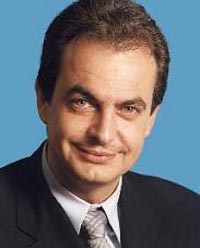African and EU countries must play a key role in controlling illegal immigration, Spanish prime minister says

Prime Minister Jose Luis Rodriguez Zapatero, speaking at the start of a two-day annual state-of-the-nation debate, defended his Socialist government's response to the crisis and its performance since its election in March 2004.
"Spain applies all the measures it can to control and regulate immigration," Zapatero said. "But it's very clear that this is not sufficient. The full involvement of the European Union is imperative, because our southern frontier is the EU's border."
Conservative opposition leader Mariano Rajoy said Zapatero's government was overwhelmed by illegal immigration and had no real plan on how to deal with "the problem that most worries the Spanish people these days."
On other issues, Rajoy accused Zapatero of failing to assure that Spain's robust economic growth trickles down to everyday people, causing divisions nationwide by allegedly showing leniency towards regional nationalists like Catalans and Basques and following an "erratic" foreign policy that has alienated traditional allies like the United States.
On the Basque separatist group ETA, which declared a "permanent cease-fire" in March, Zapatero said he was determined to reach a negotiated solution to the decades-old conflict. Rajoy responded, saying he supports the government if its goal is to negotiate ETA's dissolution and not make any concessions towards independence, the AP reports.
But the debate was largely dominated by immigration and overshadowed by news that more than 700 illegal migrants, including six babies, were intercepted Monday on nearly a dozen fishing boats near the Canary Islands.
Authorities on the islands, off northwest Africa, say they have intercepted nearly 7,000 migrants since January, compared to 4,751 caught in all of 2005. Spain has tried to repatriate as many migrants as possible.
Subscribe to Pravda.Ru Telegram channel, Facebook, RSS!





